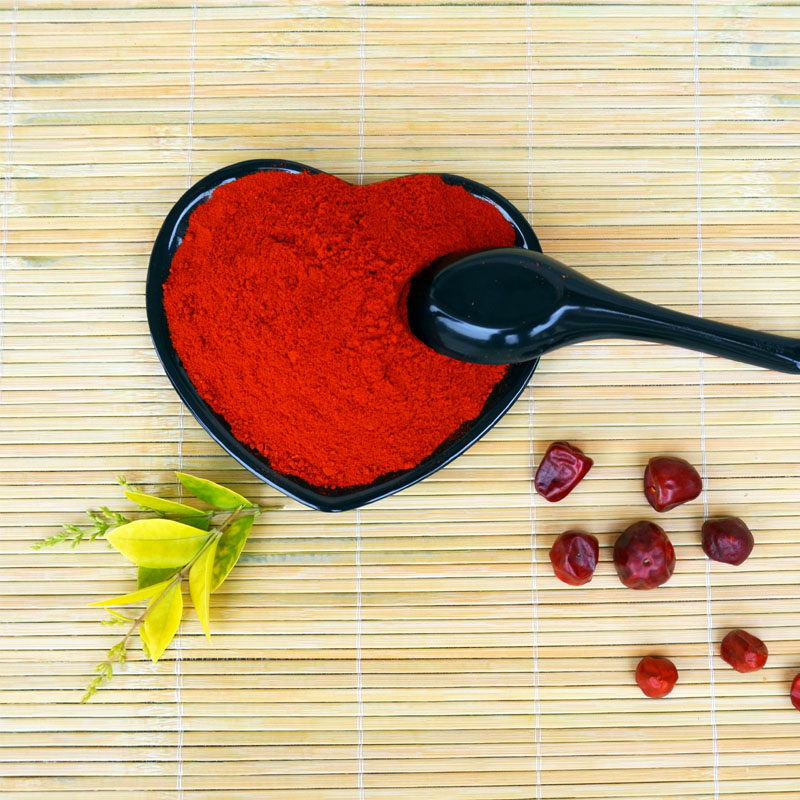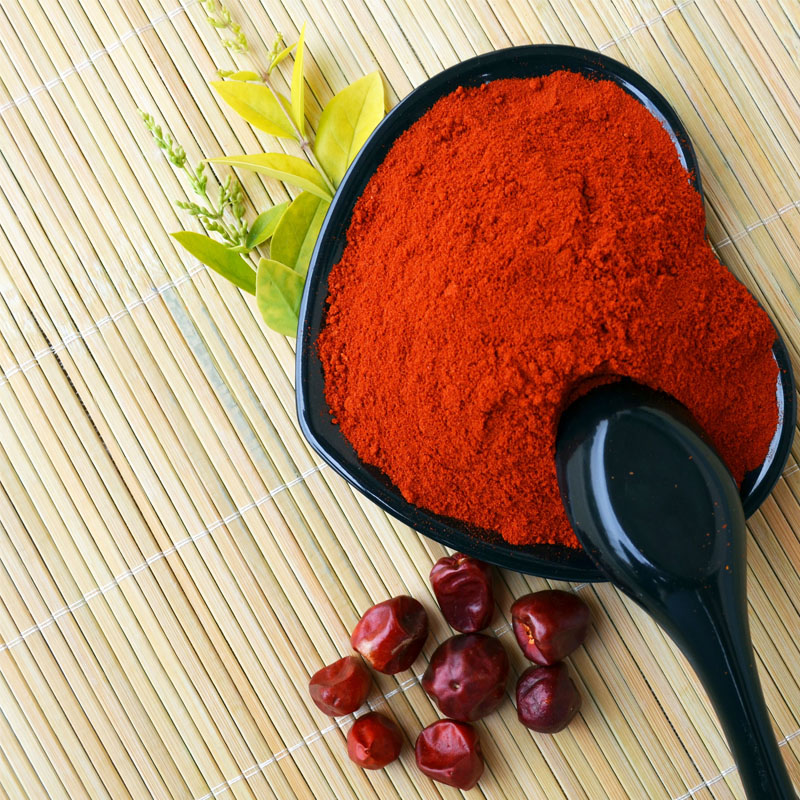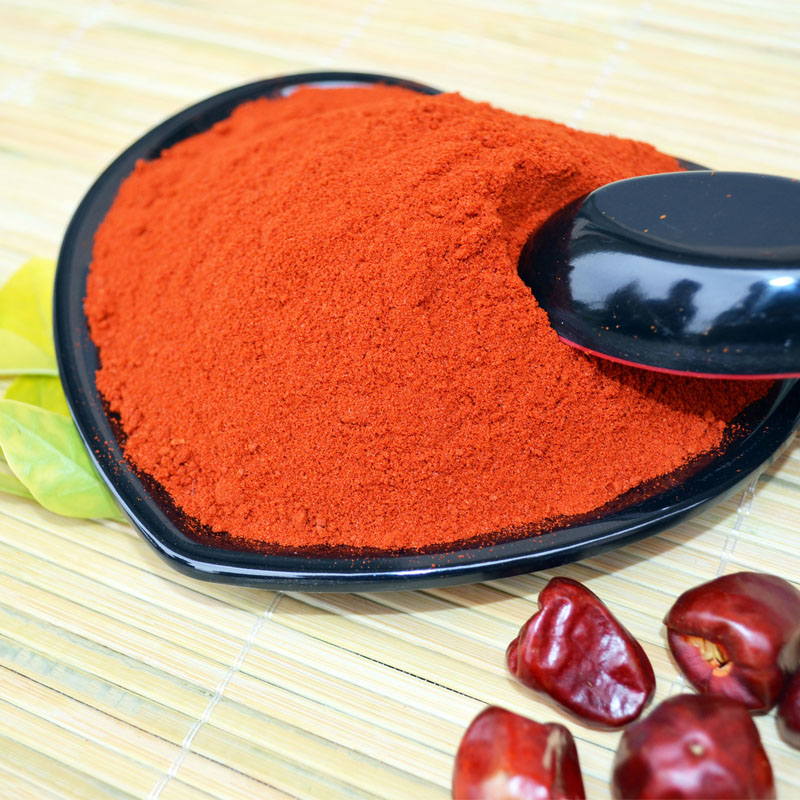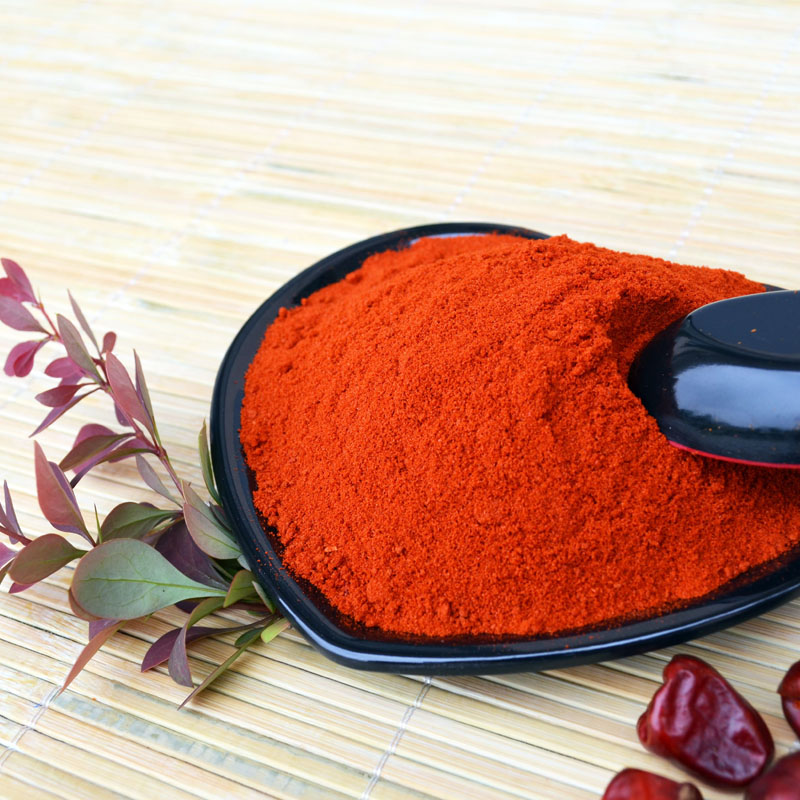- No. 268 Xianghe Street, Economic Development Zone of Xingtai city, Hebei 054001 China
- Byron@hbhongri.cn
Premium Peppereka Powder for Cooking – Rich Red Sweet Paprika
Peppereka powder—also marketed as powder paprika, red paprika powder, or sweet paprika powder—is a cornerstone spice for food manufacturers and culinary industries worldwide. As consumer demand shifts toward naturally vivid, nutrient-rich seasonings, peppereka powder’s global market continues to expand, anticipated to exceed $630 million by 2028 (source: Grand View Research).

What is Peppereka Powder: Definition, Grades, and Composition
Peppereka powder is a ground spice made from select varieties of dried Capsicum annuum peppers. Renowned for its bright red hue, sweet and mild flavor, the powder’s technical characteristics derive from pigment diversity (capsanthin/capsorubin), low pungency (Scoville Heat Units: 100–800), and high vitamin C content (90–120mg/100g). Industry grades vary based on mesh size, color value (ASTA units), and residual moisture.
Manufacturing Process of Peppereka Powder
Modern production lines employ precision cleaning, drying, grinding, and quality control systems to ensure food safety and consistent color. Below is a schematic illustration and a step-by-step breakdown of peppereka powder manufacturing:

- → Selection: Only non-GMO, ripe, and graded capsicum are chosen (≥95% ripeness, pesticide-free certification).
- → Washing & Destemming: Automated high-pressure jets remove foreign matter.
- → Drying: State-of-the-art hot air oven (52–60°C) reduces moisture to <11%—crucial for microbial stability.
- → Grinding: Cryogenic or CNC-milled for consistent 40–100 mesh fineness; micro-pulverization prevents heat-related pigment degradation.
- → Sieving & Blending: Even pigment distribution ensures reliable color intensity (ASTA color value 120–180 units).
- → Quality Control: ISO 22000 / FDA / HACCP batch testing—microbial, pesticide, heavy metal, and colorimetric analysis.
- → Packing: Oxygen-barrier, food-grade packaging under HEPA-filtered environments extends shelf-life to 24 months.
Leading manufacturers adopt advanced drying and color stabilization technologies—as per ISO 7541:2020 —ensuring that peppereka powder delivers vibrant color, optimal flavor, and compliance with global standards.
Technical Parameters of Peppereka Powder
| Parameter | Typical Value | Standard Range |
|---|---|---|
| Color Value (ASTA) | 140–180 units | ≥120 units |
| Moisture Content | <10.5% | <11% |
| Mesh Size | 60–80 mesh | 40–100 mesh |
| Capsaicin Content | <0.15% | <0.3% |
| Scoville Units | 100–800 SHU | <1000 SHU |
| Vitamin C (Ascorbic Acid) | 95–120 mg/100g | >80 mg/100g |
| Heavy Metals (Pb, As, Cd) | <0.1 mg/kg | Complies with EU/US Food Safety |
| Shelf Life | ≥24 months | ≥18 months |

Parameter Trend Analysis: ECharts Visualization
The chart above illustrates that peppereka powder has seen consistent improvements in color intensity, reduced moisture for increased shelf-life, and stabilized pungency (lower capsaicin)—attributable to advances in drying and pigment-preservation processes.
Paprika Powder Product Comparison: Peppereka vs. Common Grades
| Feature | Peppereka Powder | Regular Red Paprika Powder | Sweet Paprika Powder |
|---|---|---|---|
| Color Value (ASTA) | 150–180 | 110–135 | 120–145 |
| Pungency (Scoville) | Very Mild (100–800) | Moderate (500–2000) | Negligible (<200) |
| Mesh Size | 60–80 mesh | 40–80 mesh | 60–100 mesh |
| Process | CNC-milled, ISO Certified | Conventional Grinding | Micro-milled |
| Usage Life | 24 months | 12–18 months | 18–24 months |
| Application | Instant Noodles, Chips, Sausage, Pet Food | Bakeries, Ready Meals | Meats, Sauces |
| Certifications | ISO 22000, HACCP, FDA | ISO 9001 | ISO 22000 |
Technical Strengths and Industry Certifications
- Peppereka powder is renowned for high color value, certified hygiene, and ultra-fine texture, ensuring uniform dispersion in foods.
- All batches subjected to third-party analysis: European Pharmacopoeia, SGS, and local food safety agencies.
- Compliant with FDA, ISO, and EFSA safety standards.
Applications: Where Peppereka Powder Excels
- Beverages & Snacks: Adds vibrant color and mild flavor to fruit drinks, energy bars, and chips.
- Meat Processing: Ideal for chorizo, sausage, ham, and smoked meats—remarkable color uniformity and anti-bacterial effect.
- Instant Foods: Used in seasoning packets for noodles, soups, and ready-to-eat meals due to its solubility and pigment stability.
- Pet Food Industry: Enhances visual appeal and natural antioxidant level in premium formulations.
- Dairy and Cheese: Ensures consistent surface coloring on ripened cheeses and spreads.
- Food Service: Bulk formats available for large-scale kitchens, fast-food chains, and catering services worldwide.

Data Visualization: Technical Indicator Comparison
Customization Options & Delivery Cycle
- OEM/Private Label: Custom-mesh sizing, pigment intensity, packaging (100g, 500g, 25kg bags, bulk totes).
- Industrial Blends: Tailored blends for chips, meats, and specialty foods (peppereka powder as base ingredient).
- Lead Time: Standard order (2–10MT): 10 days; Large-scale (20–100MT): 22–25 days.
- Quality Assurance: 100% lot traceability, 24-month shelf-life commitment, replacement on non-conformities.
- Support: Pre-shipment sample testing, technical brochures, international logistics support.
Real Industry Data: Peppereka Powder Demand and Use (2020–2024)
Application Case Study: Energy-efficient Food Plant Upgrades with Peppereka Powder
- Client switched from chemical colorants to peppereka powder in potato chips.
- Outcome: 16% reduction in pigment costs, 24% decrease in allergen complaints from retailers, extended average shelf-life by 5 months.
- Met all FDA and EFSA guidelines, receiving A-grade inspection score and positive consumer reviews.
Customer Voices: Testimonials & Feedback
- German Sausage Manufacturer: “Switching to peppereka powder cut our additives by 30%, while maintaining optimal color in vacuum packs.”
- Global Snack Brand: “The powder paprika delivered outstanding heat stability for fried snacks.”
- Pet Food Exporter: “Regulatory documentation and heavy metal certificates were processed fast, providing confidence for our EU shipments.”
FAQ: Peppereka Powder Professional FAQ
A: High-grade, sun-ripened Capsicum annuum cultivars, specifically bred for high pigment and minimal capsaicin.
Q2: What mesh size is optimal for industrial applications?
A: 60–80 mesh (standard), with custom options available for soup mixes and cheese coatings.
Q3: Which certifications should quality peppereka powder conform to?
A: ISO 22000:2018, HACCP, FDA, Kosher, Halal, and Non-GMO Project Verified.
Q4: How is the color value (ASTA) determined and why is it important?
A: Measured via UV spectrophotometry (per ASTA 20.1); higher values = brighter red color, vital for product appearance.
Q5: What is the recommended storage and shelf-life?
A: Cool, dark, dry environments (
Q6: What are the main analytical tests performed?
A: Moisture analysis, color value (ASTA), capsaicin content, microbial load, pesticide & heavy metal residue, per ISO/ANSI/FDA standards.
Q7: What product forms are available?
A: Fine powder, granules, flakes, de-seeded powder; packing: 100g to 25kg bags, custom industrial totes.
Why Choose Our Brand for Peppereka Powder?
- Heritage: Over 16 years dedicated to paprika manufacturing, supporting FMCG brands globally.
- Quality: Advanced cryogenic grinding, preserving pigment & aroma. Assured by batch-to-batch HACCP traceability.
- Partner Network: Certified supplier to Fortune 500 food companies, top pet food chains, and leading ingredient importers.
- Service: End-to-end documentation, technical support, rapid export processes (EU, US, Middle East, Asia).
Further Reading & Authoritative Sources
- ISO (2020). ISO 7541:2020: “Paprika – Specification and Test Methods”
- Grand View Research – Paprika Market Analysis Report
- Institute of Food Technologists (IFT) Community Forum: "Pigment Stability in Capsicum-Based Seasonings"
For more information and detailed specifications, visit the product page for peppereka powder.
-
Capsicum frutescens oleoresin – High Purity, Food GradeNewsNov.17,2025
-
Capsicum Frutescens Oleoresin – Natural Heat & FlavorNewsNov.17,2025
-
Peppereka Powder – Fresh, Vibrant Color & Sweet AromaNewsNov.17,2025
-
Paprika Oleoresin | Natural Red Color, Heat & Flavor BoostNewsNov.17,2025
-
Pure Turmeric Extract 95% Curcumin | Potent, Lab-TestedNewsNov.17,2025
-
Red Papper Pods – Premium Sun-Dried, Bold Heat & AromaNewsNov.10,2025







